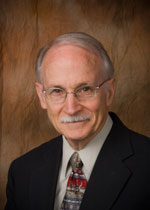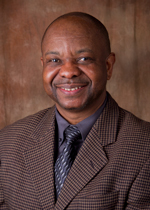by Emily Snell | Sep 11, 2012 | Opinion
Most students at Lipscomb remember details about where they were, what they did and how they were affected on Sept. 11, 2001. Each of us has a unique perspective about what took place that day, but we all share in the way that it changed our nation forever. On this eleventh anniversary of 9/11, a handful of Lumination staff members share their experiences from that fateful day. Erica Aburto, senior studying journalism & new media; in Chicago on Sept. 11, 2001: The chilly gusts of wind were making a presence early in the year. It was a murky morning that day, almost as if foreshadowing something ominous was going to happen. I was in fifth grade at Nightingale Elementary on the southside of Chicago at the time. About thirty minutes after school had started, I remember one of the teachers from another hall coming into the classroom, sobbing, and whispering something into my homeroom teacher’s ear. My teacher, Ms. Hillman, gasped and put on her glasses to turn on the TV. She lowered the volume and told us that there had been some very bad men doing bad things. She said we wouldn’t be able to understand but that some bad guys flew a plane into a building, killing people. I remember one of my classmates breaking into tears and asking the teacher if we’d get hit too, since we also have big buildings. Ms. Hillman tried to put her at ease but said she hoped not. The rest of the day, we switched classes, but in every class we saw the same thing–the planes crashing into the towers....
by Emily Snell | Sep 10, 2012 | News Slider
In recognition of National Suicide Prevention Week, Dr. Paul Cates, director of the Lipscomb counseling center, offered some advice for students who may be struggling or know someone who is struggling with emotional issues. To learn more about what Dr. Cates said and to gain more information from organizations like To Write Love on Her Arms and The International Association for Suicide Prevention, read the article “Dr. Paul Cates shares advice for students during National Suicide Prevention Week.” Statistics from the International Association for Suicide Prevention: Selected Global World Suicide Prevention Facts and Figures: Data from the World Health Organization indicate that approximately one million people worldwide die by suicide each year. This corresponds to one death by suicide every 40 seconds. The number of lives lost each year through suicide exceeds the number of deaths due to homicide and war combined. Suicide attempts and suicidal ideation are far more common; for example, the number of suicide attempts may be up to 20 times the number of deaths by suicide. It is estimated that about 5% of persons attempt suicide at least once in their life and that the lifetime prevalence of suicidal ideation in the general population is between 10 and 14%. Suicide is one of the leading causes of death among the young. Suicide is estimated to be under-reported for multiple reasons including stigma, religious concerns and social attitudes. The psychological and social impact of suicide on the family and community is enormous. The economic costs associated with self-inflicted death or injuries are estimated to be in the billions of US dollars a year. Documented rates are...

by Emily Snell | Sep 10, 2012 | News Slider
National Suicide Prevention Week is Sept. 9-15, and Lipscomb’s counseling center staff reminds students that resources are available for those who have concerns about depression, suicide or other issues. Director of the counseling center Dr. Paul Cates, Ed.D, LMFT, LPC, said students should seek out “anyone they feel comfortable talking with,” especially faculty and staff, if they’re struggling with something. “A pretty good percentage of the population will have periods of depression,” Cates said. “Those are situational. We have things that throw us a curve, and it takes time to work through it. “There are all kinds of reasons why we get down, and it’s in those kinds of times that we’re going to think drastically,” he said. “And that’s a good time to go talk to a counselor or talk to somebody that you feel is a good listener who can share some experienced wisdom with you and can help you work through those things.” Cates said suicide is not as common at Lipscomb as it might be in other communities but said there have been times when he’s had suicidal clients at the counseling center. He said students should not take it lightly if they know someone who might be suicidal. “If an individual has been thinking suicidally, that is something you take very seriously.” To Write Love on Her Arms, “a non-profit movement dedicated to presenting hope and finding help for people struggling with depression, addiction, self-injury and suicide,” reports that suicide is the third leading cause of death among 15-24 year olds. The International Association for Suicide Prevention reports that women attempt suicide 2-3 times...
by Emily Snell | Sep 7, 2012 | News Slider, Sports
In this week’s installment of Lumination News, Crystal Davis and Jeremy Keck are behind the news desk to update you about what’s going on at Lipscomb. Monaih Sam shares what’s new in Lipscomb and local sports, Kelly Dean fills you in on entertainment news, Clay Smith offers a fresh look at politics, and Nicci Carney updates you on the weather forecast. Videos feature the grand opening of ZeBi and Auntie Anne’s, Lipscomb’s Behavior Intervention Team, College Colors Day, the university’s club ultimate frisbee team, a student art gallery, a gardening project at Lipscomb Academy, and Nashville Spotlight on Essex Bargain Hunt....

by Emily Snell | Sep 5, 2012 | Uncategorized
After leaving Zimbabwe, a small country in Southern Africa, and teaching at two other Church of Christ universities for several years, Dr. Florah Mhlanga came to Lipscomb in August 2011 as a biology professor. Mhlanga, one of nine children, earned her bachelor’s degree from the University of Zimbabwe before obtaining her master’s and doctorate degrees at Michigan State University. She has two children, Carl, 15, and Craig, 10, and her husband, Fortune, is director of Lipscomb’s School of Computing and Informatics. Mhlanga said she came to the United States from Zimbabwe with her husband and their two sons in 2002 because the political and economic climate in Zimbabwe was beginning to “deteriorate.” “We never thought we would leave Zimbabwe,” she said, noting that she was a professor and chair of her department at the University of Zimbabwe. An opportunity arose at that time, Mhlanga said, for them to teach at Faulkner University in Montgomery, Ala., and she said she believes it was a blessing from God. “We thought it was a God-sent opportunity to shield us from some of the problems that really we were experiencing — the political and economic problems in Zimbabwe,” she explained. “We thought it was really God’s call or a blessing, in a way, from God that he opened this avenue for us to leave Zimbabwe and to go to Alabama to work there.” Mhlanga said the condition of the political and economic system in Zimbabwe gave her concern for her children and their ability to have opportunities. “It was going to be very difficult to educate them, to find a good educational system...


